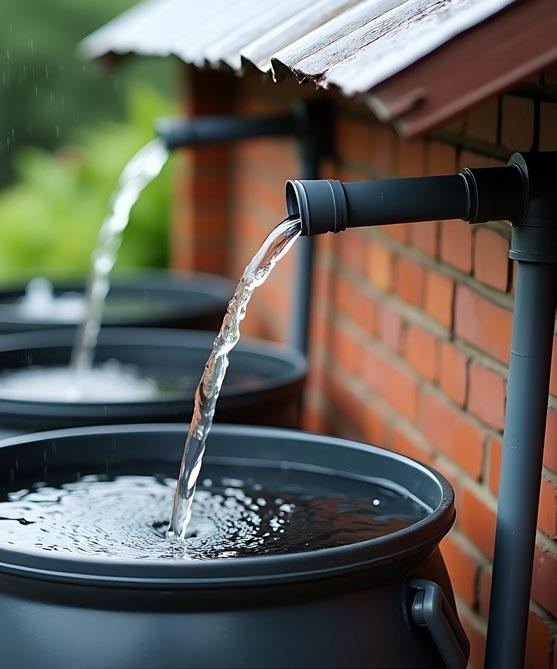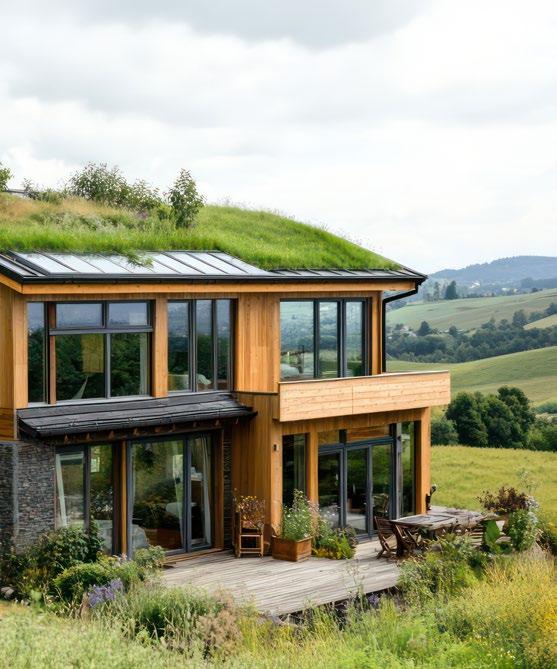
HOW’S THE MARKET?
June marks the start of summer in the Yampa Valley, a Goldilocks month with ideal weather for enjoying the outdoors (not too hot and not too cold). The Yampa River peaks, mountain bike trails dry out, and the Farmer’s Market begins, creating an optimistic atmosphere in the valley. This is also a favorable time for real estate, with increased inventory and appealing property showings.
As of May 21, 2025, Routt County's active residential listings have risen to 289 from April's 244. Pending properties decreased to 32 in April, contrasting with 49 in March and 50 in April of the previous year. Closed listings continued their upward trend, reaching 52 in April, a modest increase of 5 over the 47 closed in March. This followed a more significant gain of 22 closed properties from February to March.
Nationally, the average 30-year fixed-rate mortgage stood at 6.81% on May 15, 2025, according to Freddie Mac, a slight decrease of 0.02% from the previous month. Mortgage rates have remained relatively stable over the past year, mostly fluctuating between 6.5% and 7%.
This month's Insider covers a variety of summer-related topics, including the offerings at the Farmer’s Market, an overview of real estate taxes in Colorado and Steamboat, and an update from Friends of the Yampa about their new River Center.
Our team at The Group is dedicated to serving as your trusted real estate advisors. Please feel free to contact us with any questions. We hope you savor the beginning of summer in the Yampa Valley and appreciate the special environment we live in.

FARM TO FRIDGE – HOW TO SHOP LOCAL IN ROUTT COUNTY

Eating and shopping local has never been easier in Routt County. A year-round opportunity to connect and purchase from local growers and purveyors was set up by the Community Agriculture Alliance in 1999 and has grown exponentially. Their storefront at 35 Eleventh Street is home to the newly re-named Yampa Valley Foods, where people can shop for foods including locally raised meats, vegetables, eggs, dairy, condiments and even treats for Fido. Shoppers have the option to sign up for a membership bringing greater connection to food sources and local opportunities.
Throughout the summer, shoppers have the pick of all things local at their fingertips at the weekly Main Street Farmers Market. Every Saturday, the tantalizing scents of sizzling barbecue and freshly baked goodies emanating from Yampa Street in Steamboat Springs always draws a crowd. The riverside locale is transformed into a tented village filled with over 150 vendors. This year it will be open Saturdays from June 7 to September 20, 2025, from 9 a.m. to 2 p.m.
The pop-up market showcases a smorgasbord of local and regionally raised fare, homecooked goods and artisan offerings. Local roots run deep with business names including Cooking Until the Cows Come Home, Bar-U-Eat, Aspen Botanical, The Goat’s Goods and Bee Grateful giving a nod to their roots. Shoppers have their pick of grass-fed Wagyu beef, bison, lamb, smoked trout, fruits, vegetables, handcrafted sauces and condiments, beverages, fresh flowers, jewelry, clothing, leather goods, art, gifts and sustainable household necessities.
Food trucks and live music keep even the non-shoppers lingering for hours. Entertainment is on hand at the guest experience tent of which, The Group will be a proud sponsor. The Group will also have a tent at the Farmers Market. Members of the tight-knit team look forward to welcoming locals and visitors alike, and we are always happy to share local tips on more summer happenings in the ‘Boat.



For a full list of vendors at this year’s farmer’s market, check out: https://www.mainstreetsteamboat.com/farmers-market/farmersvendor-directory/ Information on the Community Agriculture Alliance and Yampa Valley Foods can be found at www.communityagalliance.org
PROPERTY TAX ASSESSMENT UNDERWAY IN ROUTT COUNTY
In Routt County, Colorado, property tax classification plays a crucial role in determining how much homeowners and landowners pay annually. Each classification, whether residential, commercial or agriculture come with specific statutes and implications.
RESIDENTIAL VS. COMMERCIAL TAXATION
Residential property in Routt County is typically assessed at a significantly lower rate than commercial property. As of recent state legislation, residential properties are assessed at around 6.95% of their actual value, while commercial properties are assessed at 29%. This difference can result in substantially higher tax bills for commercial properties, even if their market values are similar to those of residential parcels.
The classification of a property as residential or commercial is based primarily on its usage. If a home is used solely as a primary residence is clearly residential. However, if that same home is rented out as a shortterm vacation rental, the property may be subject to reclassification as commercial, depending on its use, frequency of rental, and services provided.
AGRICULTURAL STATUS
Agricultural classification can offer the lowest property tax rate of all. To qualify for agricultural status in Routt County, land must be used primarily for producing agricultural products—such as livestock, hay, or crops— with a clear intent of generating profit. This use must be ongoing and documented, typically over a two-year period.
Leasing land to a third party for agricultural use can also help a property qualify, as long as the lease is formalized, and the land is actively being used for qualifying ag activities. Simply Owning a sizeable parcel or housing several animals on the land is not enough to meet the criteria. Agricultural classification not only results in a significantly lower assessed value but also helps preserve open space, which is a priority for many Routt County residents.
Because reclassification—whether to or from agricultural or commercial status—can significantly impact taxes, it’s important for property owners to work closely with the Assessor’s Office and consult with legal or tax professionals familiar with Colorado’s property statutes.
Colorado law mandates a two-year reassessment cycle for all taxable real estate property and 2025 is a reassessment year. Assessments are made using sales and appraisal data from the last two years up to June 30, 2024. In cases where that information is insufficient, data is gathered for up to five years prior.
Each property was assessed on its condition and usage as of January 1, 2025. The actual value for the current year will indicate a property’s worth on the statutory appraisal date – June 30, 2024. That value will be entered to calculate the property taxes, which are billable in January 2026. Upon reviewing the information, property owners can dispute Appeals can be submitted online, in-person at the Routt County Assessor’s office at 522 Lincoln Avenue, Suite 10, by mail, email or fax.
The Routt County Assessor’s office shared the following important dates.
• Appraisal Date - June 30, 2024
• Assessment Date - January 1, 2025
• Study Period - July 1, 2022 - June 30, 2024
• Appeal Period - May 2, 2025 - June 9, 2025
All information can be found at https://www.co.routt.co.us

SAVE WATER AND YAMPASCAPE
Green roofs, chicken coops and rain barrels are just a few green additions to be found on properties dotted around downtown Steamboat Springs. Homeowner efforts are a welcome alignment with the city’s vision statement "to preserve our past while assuring an economically, culturally and environmentally sustainable future.”
As the community embraces a change of season from winter to summer, there is a renewed ability to focus attention beyond the sustainable measures confined within four walls. Rising living costs support the post-COVID trend of housing chickens for eggs and establishing a seasonal vegetable garden. Even bee keeping has seen a surge in participation.
Among the most popular efforts is water conservation. The City of Steamboat Springs and Mount Werner Water and Sanitation District adopted the 2020 Water Conservation Plan, issuing an ordinance to implement a watering schedule. The plan aims to reduce per household water use by 10% in 10 years. Approximately 30% of the community’s treated water supply is used for lawns and gardens. The plan additionally encompasses initiatives for water fixture rebates, metering and infrastructure repair.
The Yampa Valley Sustainability Council encourages property owners to “Yampascape,” in support of reducing the reliance on water. Those inclined to inspire neighbors to join the movement can send a photo of their yard to the YVSC and receive a sign market “This Yard is Sustaining Water with YVSC.”
WAYS TO YAMPASCAPE:
Rainwater Harvesting: Stored water in barrels or cisterns can be used to irrigate gardens and provide a sustainable supplemental source.
Green Roofs: For homes or outbuildings, green roofs offer an innovative and eco-friendly gardening solution. A green roof consists of a waterproof membrane, drainage layers, soil, and vegetation. It provides insulation, reduces stormwater runoff, and creates habitat for pollinators. In the Rocky Mountains, sedums and other hardy alpine plants thrive on green roofs, requiring minimal maintenance and irrigation once established.
Xeriscaping and Native Plants: One of the most effective ways to conserve water is by planting drought-tolerant plants which require minimal irrigation. A host of native species pack a colorful punch including blue flax, penstemon, and yarrow. These plants are adapted to the region's dry summers and cold winters, reducing the need for supplemental watering and fertilizers.
Soil Improvement and Mulching: Improving soil structure with organic matter enhances its ability to retain moisture. Compost and other organic amendments aid soil to hold water more efficiently and provide essential nutrients to plants. Additionally, applying a thick layer of mulch (such as bark chips, straw, or gravel) around plants reduces evaporation, suppresses weeds, and helps maintain stable soil temperatures.
Design for Microclimates: Strategic Garden design can also aid water conservation. Planting windbreaks, creating shade, and grouping plants with similar water needs together can reduce water usage and protect sensitive plants from harsh conditions.



By combining these methods, gardeners in the Rocky Mountains can create beautiful, resilient landscapes that conserve water and support biodiversity.
Taken together, these initiatives reflect a strong community commitment to sustainability. Routt County residents are showing that green living isn’t just good for the environment—it’s smart, forward-thinking, and increasingly, part of what defines a modern mountain home.









